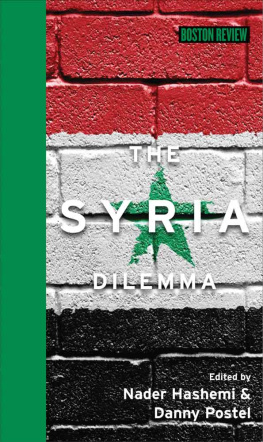Thomas Pierret - Religion and State in Syria
Here you can read online Thomas Pierret - Religion and State in Syria full text of the book (entire story) in english for free. Download pdf and epub, get meaning, cover and reviews about this ebook. year: 2013, publisher: Cambridge University Press, genre: Religion. Description of the work, (preface) as well as reviews are available. Best literature library LitArk.com created for fans of good reading and offers a wide selection of genres:
Romance novel
Science fiction
Adventure
Detective
Science
History
Home and family
Prose
Art
Politics
Computer
Non-fiction
Religion
Business
Children
Humor
Choose a favorite category and find really read worthwhile books. Enjoy immersion in the world of imagination, feel the emotions of the characters or learn something new for yourself, make an fascinating discovery.
- Book:Religion and State in Syria
- Author:
- Publisher:Cambridge University Press
- Genre:
- Year:2013
- Rating:5 / 5
- Favourites:Add to favourites
- Your mark:
- 100
- 1
- 2
- 3
- 4
- 5
Religion and State in Syria: summary, description and annotation
We offer to read an annotation, description, summary or preface (depends on what the author of the book "Religion and State in Syria" wrote himself). If you haven't found the necessary information about the book — write in the comments, we will try to find it.
Religion and State in Syria — read online for free the complete book (whole text) full work
Below is the text of the book, divided by pages. System saving the place of the last page read, allows you to conveniently read the book "Religion and State in Syria" online for free, without having to search again every time where you left off. Put a bookmark, and you can go to the page where you finished reading at any time.
Font size:
Interval:
Bookmark:
While Syria has been dominated since the 1960s by a determinedly secular regime, the uprising that began there in 2011 has raised many questions about the role of Islam in the countrys politics. This book, which is based on the authors extensive fieldwork in Syrias mosques and schools and on interviews with local Muslim scholars, is the first comprehensive study of the countrys little-known religious scene and its most influential actors, the ulama. It demonstrates that with the eradication of the Muslim Brothers after the failed insurrection of 1982, Sunni men of religion became the only voice of the Islamic trend in the country. Through educational programmes, the establishment of charitable foundations, and their deft handling of tribal and merchant networks, they took advantage of popular disaffection with secular ideologies to increase their influence over society. In recent years, with the Islamic resurgence, the Alawi-dominated Bathist regime was compelled to bring the clergy into the political fold. This ambiguous relationship was exposed in 2011 by the division of the Sunni clergy among regime supporters, bystanders, and opponents. This book affords an entirely new perspective on Syrian society as it stands at the crossroads of political and social fragmentation.
Thomas Pierret is a Lecturer in Contemporary Islam at the University of Edinburgh. He has edited two volumes on contemporary Islam and published numerous journal articles, book sections, and entries for the Encyclopaedia of Islam . Since the beginning of the Syrian uprising in 2011, he has been featured extensively in media such as the New York Times, Foreign Policy , Le Monde , the BBC, France 24, Al Jazeera English, and AFP.
Cambridge Middle East Studies has been established to publish books on the nineteenth- to twenty-first-century Middle East and North Africa. The series offers new and original interpretations of aspects of Middle Eastern societies and their histories. To achieve disciplinary diversity, books are solicited from authors writing in a wide range of fields including history, sociology, anthropology, political science, and political economy. The emphasis is on producing books affording an original approach along theoretical and empirical lines. The series is intended for students and academics, but the more accessible and wide-ranging studies will also appeal to the interested general reader.
For a list of titles published in the series, please see .

This publication is in copyright. Subject to statutory exception and to the provisions of relevant collective licensing agreements, no reproduction of any part may take place without the written permission of Cambridge University Press.
Cambridge University Press has no responsibility for the persistence or accuracy of URLs for external or third-party Internet websites referred to in this publication and does not guarantee that any content on such websites is, or will remain, accurate or appropriate.
To the martyrs of the Syrian revolution
To Mriam and Loue
The last lines of this book were written in February 2012, at a time when the bloody suppression of the popular uprising in Syria had been ongoing for almost a year. During these past months, I have thought unceasingly of my many friends and acquaintances who live in, and in some cases have been forced to flee, this country that is so dear to me. It is to them that I address my greatest thanks although, to my regret, the future is still too uncertain to allow me to mention the full names of people currently in Syria. At the top of the list are my guardian angels, the religious students who guided me through the mosques of Damascus and Aleppo: Mostafa, Bara, Ammar, Faris, Ali, Mahmud, Muhammad, and many more may God protect you. Sheikh Ahmad Mouaz al-Khatib has not only been incredibly helpful and generous, but he also taught me much about human values. I also had the chance to meet astute observers such as Abd al-Rahman al-Hajj Ibrahim, Mohamad Berro, and Isam Abdulmola. Finally, I express my gratitude to the protagonists of this book, who agreed to receive me despite the difficult context, and especially to all those who granted me more time and attention than mere courtesy could ever demand.
This book would never have seen the light of day without the support of several institutions whose respective directors provided me with invaluable encouragement and advice. My doctoral research was funded by the Fonds National de la Recherche Scientifique of Belgium and supervised by Professor Gilles Kepel at Sciences Po Paris (Chaire Moyen-Orient Mditerrane), as well as by Professor Felice Dassetto at the Universit catholique de Louvain (Centre for Interdisciplinary Research on Islam in the Contemporary World). During my fieldwork in Syria, I appreciated the helpfulness of the staff and Fellows of the French Institute (IFPO). The transformation of my dissertation into a book was facilitated by a postdoctoral fellowship at Princeton University funded by the Belgian American Educational Foundation and supervised by Professor Michael Cook. The translation into English of the French manuscript was carried out during a visiting fellowship at the Zentrum Moderner Orient in Berlin under the supervision of Professor Ulrike Freitag. For their help in various circumstances, I am also indebted to Amin At-Chaalal, Andrew Arsan, Francis Balace, Annabelle Bttcher, Franois Burgat, Baudouin Dupret, Jean-Pierre Filiu, Michael Gilsenan, Bernard Haykel, Steven Heydemann, Raymond Hinnebusch, Amaney Jamal, Gudrun Krmer, Brigitte Marchal, Tarek Mitri, lizabeth Picard, Bernard Rougier, and Ghassan Salam. The insightful and friendly comments of Mohammad Al Attar, Souhail Belhadj, Ccile Box, Farid El Asri, Thomas Hegghammer, Steffen Hertog, Boris James, Stphane Lacroix, Paulo Pinto, Laura Ruiz de Elvira, Kjetil Selvik, Ward Vloerberghs, and Odai Al Zoubi greatly enriched the content of this book. Sincere thanks also to Benedict Young of Babel Editing for his outstanding job in correcting my translation of the original French text. For reasons that are too numerous to be mentioned here, I cannot overstate my gratitude to Benjamin White.
Font size:
Interval:
Bookmark:
Similar books «Religion and State in Syria»
Look at similar books to Religion and State in Syria. We have selected literature similar in name and meaning in the hope of providing readers with more options to find new, interesting, not yet read works.
Discussion, reviews of the book Religion and State in Syria and just readers' own opinions. Leave your comments, write what you think about the work, its meaning or the main characters. Specify what exactly you liked and what you didn't like, and why you think so.

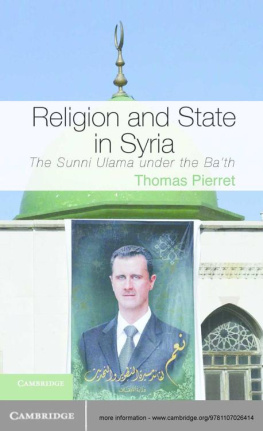
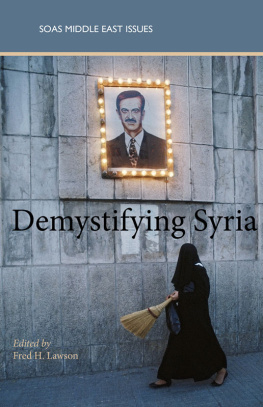

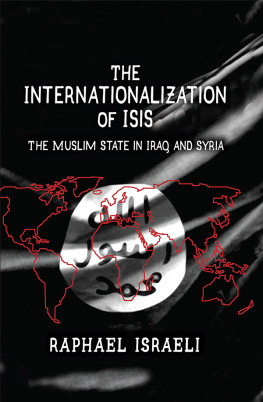
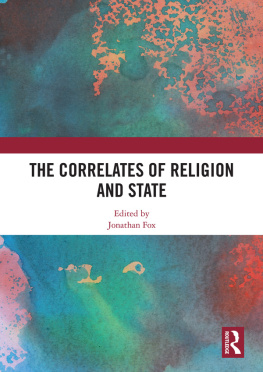
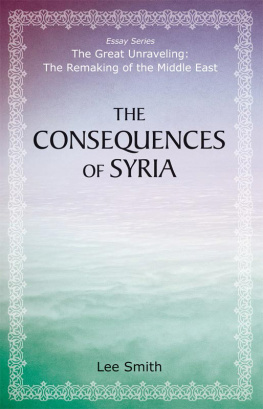
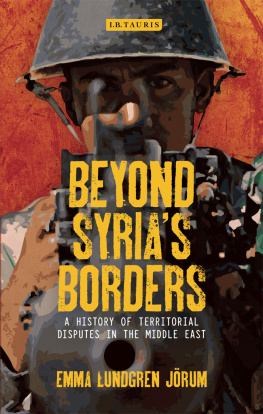
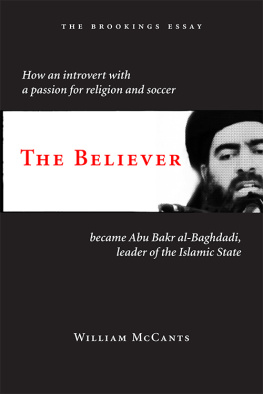
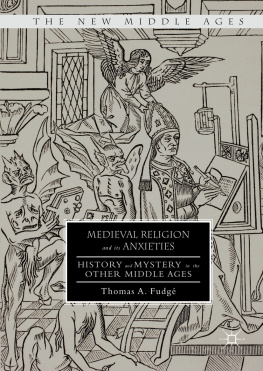
![Blackford - Freedom of religion [and] the secular state](/uploads/posts/book/167779/thumbs/blackford-freedom-of-religion-and-the-secular.jpg)
